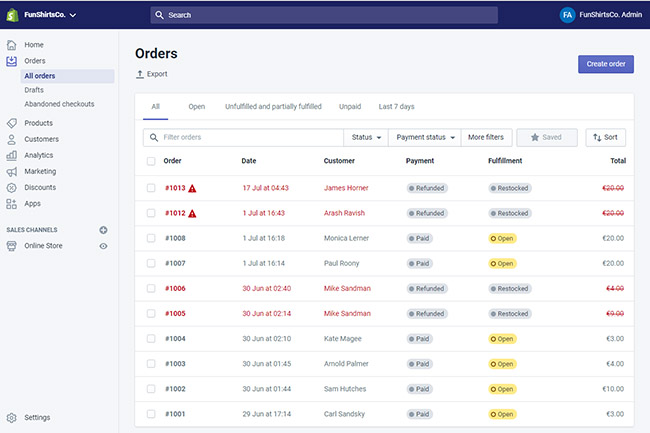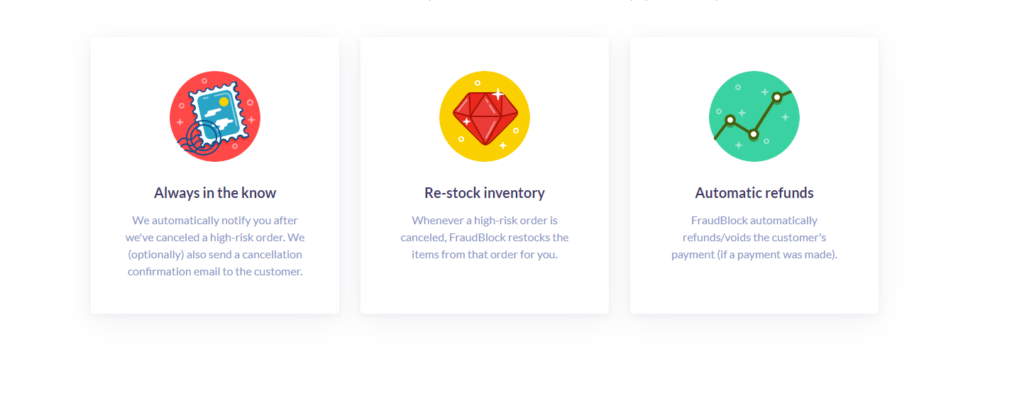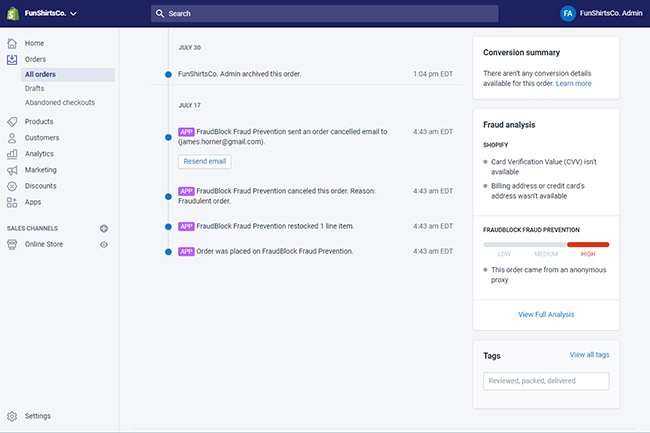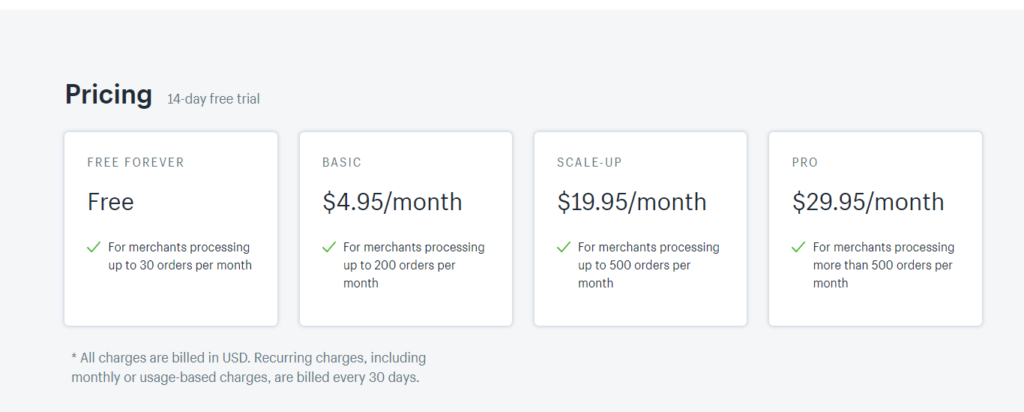Are you tired of dealing with fraudulent transactions on your Shopify store? FraudBlock might just be the solution you're searching for.
This tool has gained traction for its effectiveness in automatically cancelling high-risk orders, promising peace of mind for busy merchants.
With an easy-to-understand pricing plan and a free trial period, FraudBlock allows you to test its capabilities without immediate commitment.
In this review, we'll take a closer look at FraudBlock, assessing its features, performance, and overall value. By the end, you'll have a clear understanding of whether FraudBlock is the right safeguard for your online business. Let's dive in.
What is FraudBlock Fraud Prevention?

FraudBlock appears as a high ranking application on Shopify's app store. As a matter of fact, it stands tall against its competition with a perfect 5-star rating.
In essence, this app helps online retailers avoid making sickening losses. FraudBlock automatically cancels high-risk orders which were placed by unscrupulous customers.
What do I mean by high-risk orders?
Not all customers are authentic, so to speak. For that reason, you bear the risk of incurring chargebacks. If you don't have a skillful tool in place, it's pretty difficult to monitor what's happening behind the scenes.
Chargeback claims are quite inevitable, most predominantly, if you accept credit cards on your online store.
Let's suppose that you're a drop-shipper who's handling large sales volumes. The task to mitigate such a frustration manually could turn out to be a very time-consuming and error-prone process.
The upside is that the FraudBlock app is built to automate this process. Primarily, FraudBlock only has one job. To automatically cancel so-called ‘high-risk' orders.
Ease of Use

I'm outrightly impressed by the app's configuration process. You only need to click the ‘Install‘ button on the Shopify app store, click a checkbox to activate the app, and you're good to go.
Moreover, you don't need any coding skills to get things up and running. This is more of a ‘plug-and-play‘ application that doesn't discriminate on the basis of the user's experience.
Second to the above is the fact that FraudBlock automates the process of looking out for ‘high risk' orders. You no longer need to manage this time-consuming task manually.
How does FraudBlock Work?

Whenever a new order comes in, FraudBlock automatically evaluates its risk rating. If it turns out to be a “high-risk” order – likely to be fraudulent – the app will automatically cancel the order, re-stock the ordered products back into your inventory, and void the customer's payment (if a payment was made at all).
Because this happens within the space of a few seconds, the app saves you from running into chargeback fees from your payment providers.

To elevate the accuracy and fend off any form of bias, FraudBlock uses Shopify's fraud analysis technique. This allows the app to automatically handle all ‘high-risk' orders. So what's the deal with this fraud analysis process?
You might be wondering.
Well, this feature is open to merchants who use the Shopify Basic plan and above. In a nutshell, you gain access to pointers that tip you off on possible eventualities. Alongside that, you get robust support from 3rd party fraud prevention apps such as FraudBlock.
Since FraudBlock relies on these signals, as mentioned above, it's fruitful to get a descriptive breakdown and leave nothing to chance. As you'd expect, the fraud analysis issues instructive indicators on each order a customer places on your online store.
FraudBlock's Checklist
FraudBlock relies on Shopify's indicators to meticulously analyse each incoming order.
👉 Shopify's fraud prevention system depends on a number of signals, which are
- Whether the Address Verification System (AVS) approves the credit card used to make an order
- Whether the CVV code given by the customer is correct
- Whether the customer has tried more than one credit card when paying for the order.
- The exact IP address of where the order has come from.
In an all-embracing manner, FraudBlock uses this formula from Shopify's fraud analysis to feed its users with the most appropriate indicators. Once an order gets canceled, FraudBlock updates your inventory – in real-time – to reconcile the stock levels. Not only does this app provide a fraud protection mechanism, but it also weighs in on inventory management. Whenever an order is labeled as fraudulent, FraudBlock acts to issue automatic refunds. This is a clever feature that helps the merchant avoid fees related to chargebacks by all means. Correspondingly, FraudBlock's system voids the customer's payment if a payment was made.
Top-tier Indicators
There are many reasons why an order can look suspicious, and in our experience, Shopify's classification system is usually spot-on.
👉 FraudBlock relies on Shopify's fraud analysis, which can, for example, include:
- The order has the same attributes as those of previous fraudulent orders.
- The CVV code that's given by the customer isn't correct.
- There have been multiple payment attempts with different credit cards.
- Instances where the registered shipping address is not realistically close (i.e. above 15 miles) from the current location of the IP address.
- Whether the country from where the billing transaction took place is the same as the shipping address.
- Whether the customer is using a VPN. It's an imperative indicator to put into consideration while verifying the IP address a customer uses to place an order.
FraudBlock Pricing

The best part about this fraud prevention app is that it has a flexible pricing model. There are plans for both small and enterprise-level stores, to be precise.
Besides that, FraudBlock gives you a 14-day free trial window on each of its options. All payments are billed in USD and are charged as recurring transactions every 30 days. So here are the basics;
- Free Plan – No monthly charges whatsoever. However, this plan is limited to those merchants who fulfill fewer than 30 orders per month. Anything above that will require you to upgrade.
- Basic Plan – To make the best out of this plan's functionalities, you need to part with $4.95 per month. This particular package is tailormade for online retailers who handle up to 200 orders each month. If you fall in this category, as regards to your total number of monthly sales, then don't look back.
- Scale-Up Plan – As the name suggests, this is the ideal solution when the Basic plan is no longer capable of accommodating your needs. The scale-up option is specifically meant for merchants who process up to 500 orders on a monthly basis. This plan goes for $19.95 per month.
- Pro Plan – This is like the premium version of FraudBlock. If you fulfill anything above 500 orders per month, this is the required plan for your business' security. The damage is $29.95 per month.
👍 FraudBlock Review: Pros
- It's super simple to install and doesn't require any ongoing attention from you
- It uses Shopify's built-in, top-notch fraud detection analysis
- Adaptable pricing plans
- The ‘re-stock inventory' option is innovative
👎 FraudBlock Review: Cons
- It doesn't deal with “medium risk” orders yet
Conclusion
As far as the risk to be hit with fraudulent chargebacks stands, FraudBlock seems like a must-have tool. Most imperatively, it suits merchants who either handle small or bulk orders. Its pricing plan is easy-going, I must say.
In a nutshell, this app boosts your productivity predominantly by automatically canceling risky orders that could set you a couple of bucks behind. You don’t have to do the manual scrutiny anymore.
On top of that, FraudBlock gives you a free-trial period to run the basic tests. So what’s your excuse? Just give it a shot and see how everything goes.




Comments 0 Responses